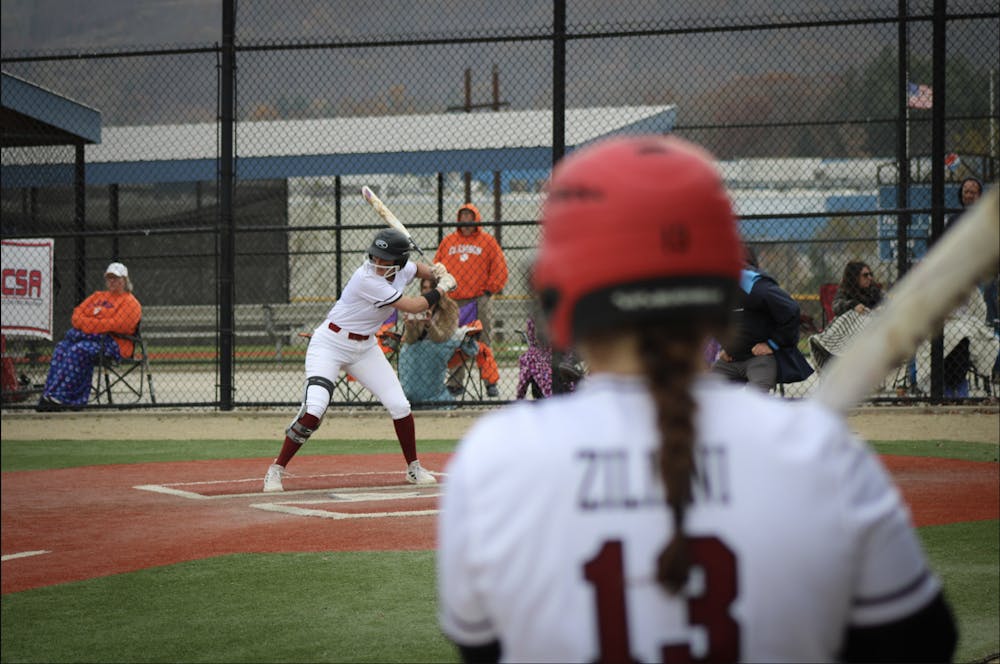The country is filled with iconic rivalries from universities across the nation, such as Duke-North Carolina, Alabama-Auburn and Michigan-Ohio State.
But in the state of South Carolina, the collegiate rivalry that arguably stands out the most is South Carolina-Clemson.
While both schools face off against each other across multiple NCAA Division I sports, the rivalry extends down to the club level, engaging both campuses in the century-old contest. On the NCAA Division I level, South Carolina and Clemson both compete in what's called the Palmetto Series for the Palmetto Cup. For every win against the opposing school, the winning side earns a point to try to capture the win and the bragging rights.
While there aren't the same stakes at the club level, that doesn’t diminish the feelings towards Clemson, especially for fourth-year public health student Zada Morgan.
“I hate Clemson. My dad went here, so he's a big Carolina fan.” Morgan said. “So since I was born, we always grew up to hate Clemson.”
During her time on the South Carolina club softball team as a short stop, Morgan has had her fair share of battles against the Tigers, with the two most recent games being in a tournament taking place on Nov. 9 and Nov. 10.
The first matchup between both schools ended up being a significant win for the Gamecocks as the team was able to run rule the Tigers 12-4 in the fifth inning.
The two teams would face off again in the semi-finals, where this time it was Clemson who was leading before South Carolina would come back to send the game into extra innings and ultimately win the game 12-11 in the eighth inning.
“It was the best experience. We all played Sandstorm after, we were cheering, 'USC, USC.' It was so fun.” Morgan said.
This will not be the last time these schools play, with a three game series set to take place later in the spring due to both teams being in the same region.
With Clemson and South Carolina being in two different conferences, the ACC and SEC, the two schools typically only play once a year. But in club sports, the two schools are typically in the same region because of the close proximity.
But even if the schools are not in the same region for a given sport, the proximity also allows for club sports to play each other frequently, such as the South Carolina club field hockey team.
Third-year exercise science student Lily Wright, who also serves as the club field hockey vice president, said she has played Clemson six to seven times in her three-year career on the team.
“We don't have many teams around here that we can play and everything.” Wright said. “So it's nice that they are so willing to play with us all the time.”
But despite both teams playing each other frequently in Wright's tenure, Wright said the rivalry is something that neither team lets drive the intensity of the game.
“I feel like we don't really look into the rivalry as much with field hockey,” Wright said. “It's just kinda like we just play them all the time because they're close and easy to make plans with.”
While both field hockey and softball typically play Clemson due to region scheduling or because they are close to campus, organizations like club ultimate frisbee participate in tournaments, setting up the possibility of a matchup with the Tigers, third-year criminal justice student Jason Skau said.
“We go to quite a few tournaments that they end up going to as well,” Skau said. “So chances are we will play them at least once every season, and I feel like a season would not feel complete without playing them.”
Raku, who played against the Tigers in a tournament on Nov. 9, believes that by playing in a club sport it allows for you to partake in the rivalry without having to be a division one athlete.
“If you're not really doing anything, you can't really say, 'Hey. I got to be a part of this major rivalry,'” Skau said. “But you could come to a club ... and then get to say, 'Hey. I played against Clemson, I was on the field for that rivalry,' and I think that's a pretty cool point.”

Club sports are not the only opportunity for students of both schools to participate in the rivalry. The Carolina Clemson Blood Battle is also another way students can get involved by competing to see which school can donate the most blood.
With both NCAA Division I and club sports, the Blood Battle and academic competitions, Morgan believes this helps students feel like they are participating in the rivalry.
“I think it's important to play them because I think the rivalry is not just a (NCAA Division I) thing. You see the blood drive, and then academically we always try to beat them in all aspects.” Morgan said. “So I think doing it in club sports makes us feel like we're a part of the rivalry too, and I just think it's important to everyone.”

